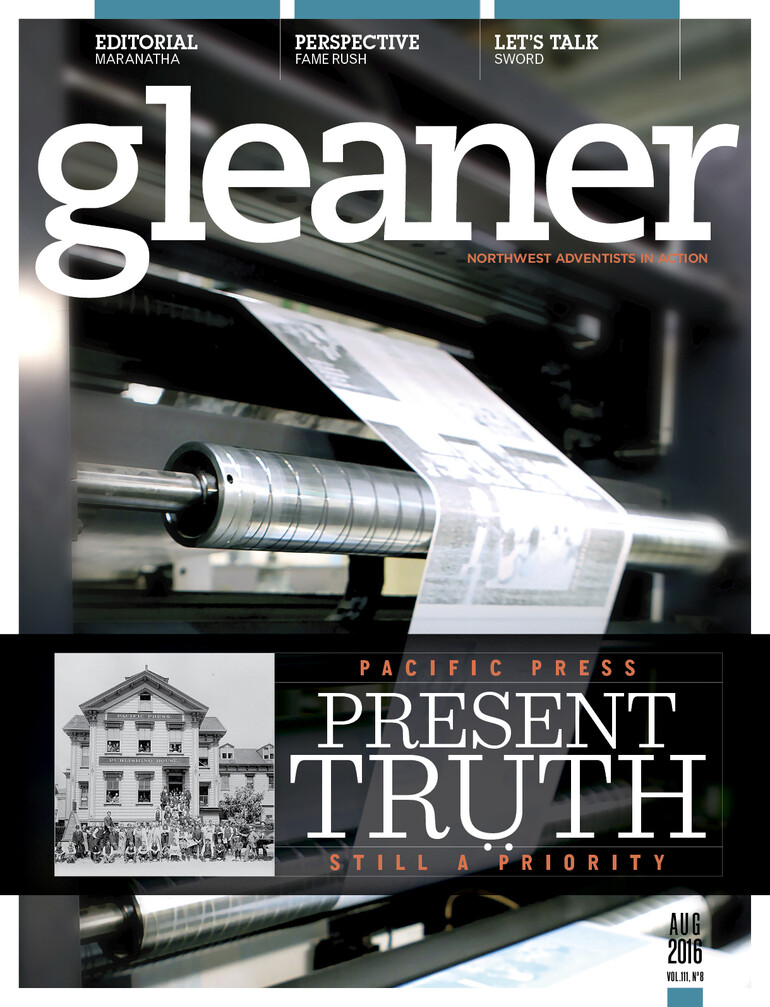Before modern technology, coal miners placed canaries in cages throughout their subterranean tunnels as an early warning against the invasion of carbon monoxide. The toxic gas often seeped into mines, odorless and thus undetected — until the songbirds started dying. That meant everybody in the mines desperately needed fresh air.
For many Seventh-day Adventist congregations in North America, the canaries are ceasing to sing. We are losing our young people, and our churches themselves are dying. Ten years ago, Paul Richardson of the Center for Creative Ministry warned, “The median age for the Seventh-day Adventist community in North America, including the unbaptized children in church families, is 58. … There are more than 1,000 local churches in the North American Division that have no children or teens at all.” [1]
Confronted with the loss of our songbirds, what should we do?
Many church leaders focus on how to persuade youth and young adults (YYAs) to stay with us — as if the solution to a noxious atmosphere is to develop a strain of poison-resistant victims. But isn’t our basic task to identify what’s poisoning our YYAs and then lead our entire church into life-giving fresh air?
Toxic Judgmentalism
What is toxic in our churches? From my own attrition research and pastoral experience, I believe many churches suffer from systemic judgmentalism, resulting from a lack of love. Not that we want to be unloving; on the contrary, we care deeply, as evidenced by how deeply our church invests in educating children right through their college years.
So what’s wrong?
I suggest we suffer from a misunderstanding of how to love. Perhaps we’ve forgotten the major issue of the Great Controversy — that love requires freedom of choice, despite inevitable risks. Thus, paradoxically, our very concern about safeguarding the spirituality of our young adults generates a coercive and judgmental counterfeit of love that drives them away in a spirit of toxic anxiety.
Good intentions do not guarantee good results. In prayer meetings, our predominant concern is attrition of our young people. Often tears are shed. No fair-minded observer could accuse praying grandparents (most prayer meeting attendees seem to be older members) of not caring about their kids, young and old. And yet many prayer warriors — in the same spirit of concern that stimulates their intercession — may form the core group of judgmentalists in the church.
Picture the Adventist grandmother who stays up past bedtime to bake cookies for the youth group, then when delivering those cookies she feels compelled to admonish (scold) the teens for what they are wearing or listening to. Her condemnation is done for the sake of Christian love. But talking about love — and even trying to love — is not the same as actually being loving. Even though our intentions are good, we need to learn what love is and how to express it.
Consider Hollywood’s obsession with love, obviously a counterfeit. Could the same thing happen in church — not the world’s over-tolerant perversion of love, but a religious counterfeit of love from the opposite extreme of intolerance?
Learning to Love
Biblical love comes not only from a caring heart but an educated mind. Paul says, “It is my prayer that your love may abound more and more, with knowledge and all discernment, so that you may approve what is excellent” (Phil. 1: 9–10, emphasis added).
Without knowledge and discernment that empowers us to approve what is excellent, our attempts to love may find a counterfeit expression in intolerance — unintended but real. And devastating.
We see this in the agape love chapter, 1 Corinthians 13. Verse 5 says of true love, “It does not insist on its own way.” This is typically interpreted as selfishness, and often is. But there is another way in which people withhold love by insisting on their own way: expecting that everybody agree with their own views of dress, diet, music, worship and everything else. They canonize their convictions, and anyone out of compliance may become the target of gentle yet judgmental correction, even coercion.
To further clarify the connection between knowledge and love, 1 Cor. 13:9 warns, “Now we know in part.” Nobody but God knows everything, and true love recognizes this, not only individually but corporately. Loving members and churches humbly tolerate some variance in understanding and expressing Christian standards: “Where the Spirit of the Lord is, there is freedom” (2 Cor. 3:17).
We desperately need the fresh air of love to cast out systemic anxiety and liberate us in the Spirit to fulfill God’s end-time calling. Then judgmentalism will cease, and our young adults will have the freedom to sing God’s song in their own way. They will find our churches a safe place to bring their friends, find a spouse and raise their children.
[1] Quoted in A. Allan Martin, “Burst the Bystander Effect: Making a Discipling Difference with Young Adults.” In Roger Dudley, ed., Ministering With Millennials (Lincoln, Neb.: AdventSource, 2009), 112.











